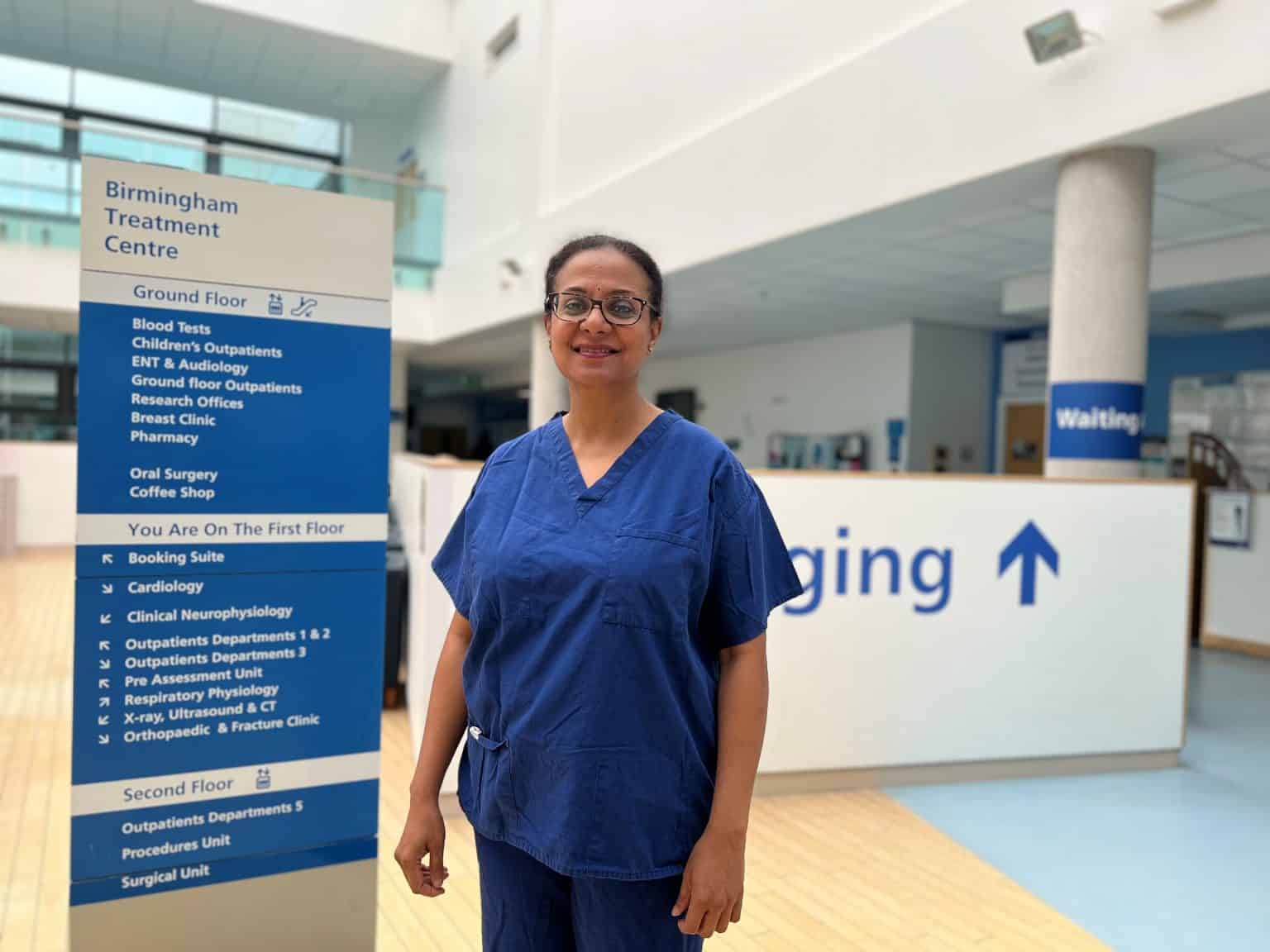
A £2 million study will see an advanced test used at GP surgeries in the West Midlands to diagnose early-stage ovarian cancer – potentially saving thousands of lives a year.
The project involves Sandwell and West Birmingham (SWB) NHS Trust and Walsall Healthcare NHS Trust (WHT) pairing up with primary care provider Modality and the University of Birmingham, to offer a blood test called ROMA to patients experiencing symptoms of ovarian cancer.
Signs of the disease include bloating, stomach pain, needing to wee more often and always feeling full.
If they are persistent, severe, frequent or out of the ordinary women are urged to see their GP where a CA-125 blood test will usually be carried, which picks up 50 per cent of patients with early stage cancer.
However, the advanced ROMA test used during this trial at Modality-run GP services in Walsall, Sandwell and West Birmingham, will identify key markers of this particular disease at an earlier stage.
If a patient has tested positive, they will be referred to their local Trust to attend a new one stop clinic where they’ll see a consultant, undergo a specialist scan and then a further consultation where the results will be shared. They will be referred for further treatment if needed.
Speaking about the study, called SONATA (tranSforming Ovarian caNcer diAgnostic paThwAys), University of Birmingham Professor Sudha Sundar and consultant in gynaecological cancer surgery at SWB NHS Trust, said: “Ovarian cancer is rare and there is a need to increase the understanding and awareness of the symptoms associated with it amongst our population and GPs.
“We know that 90 per cent of women diagnosed with ovarian cancer at stage one will survive, but this drops drastically to 15 per cent if it is picked up during stage four.
“Research conducted with my team at the University of Birmingham found out that the ROMA test is significantly better than current tests (CA125 and ultrasound) used in both pre and postmenopausal women*.
“Whilst a previous study had found that the ROMA test detects up to 20 per cent more early-stage cancers than the current test which only picks up 50 per cent of early-stage cancers**. We are putting this research into practice by carrying out this trial.”
“With Modality-run GP surgeries trialling the ROMA test we will be able to establish if it is acceptable to patients and clinicians. By testing many samples across two large laboraties we will be able to confirm whether the ROMA test has a higher chance of detecting this cancer earlier than the current CA-125 blood test used and whether implementing this across the NHS will be cost-effective.
Prof Sundar added: “Both NHS Trusts will be working with Modality in partnership to see patients testing positive at these newly established one stop clinics with specialist scans to assess and treat them accordingly.
“The project will run for 18 months and will also involve pathology services analysing the results.”
Leading on the project, Dr Aamena Salar, medical director for Modality Partnership Community Services, said: ‘Our aspiration is to transform the care of ovarian cancer by earlier detection and better outcomes for our patients.”
Nina Jhita, programme director at Modality, added: “This is true innovation; we (primary care) are delighted to collaborate with key system partners across the West Midlands to really make a difference to the lives of women whilst demonstrating how this solution can be scaled across the UK.”
Tony Thomas, Consultant, Obstetrics and Gynaecology, at Walsall Healthcare NHS Trust said: “If survival from ovarian cancer in Britain equalled the best in Europe, then almost 2,400 deaths in our country could be avoided within five years of diagnosis.
“Twenty-six per cent of ovarian cancers are diagnosed as an emergency and almost six in 10 ovarian cancer cases are diagnosed at a late stage. It is high time something is done about this.
“At Walsall we’re excited to be part of this project which aims to be a refinement on the current tools available to clinicians to catch this disease at an early stage.
“Doing this, we can make a positive difference to how our women and their families fight this terrible cancer which takes such a huge toll on our society.”
The final part of the study will see 41,000 primary care samples sent to the Black Country Pathology Service and South Tyne and Wear laboratories to accurately establish whether using the ROMA test rather than CA125 will be cost effective for the NHS. The results from the study, funded by the NHS Cancer Programme and the Small Business Research Initiative, will be analysed and used to change the way this cancer is diagnosed in the future.
Professor Sundar added: “It’s an exciting study which is a great example of integrated working between all the organisations involved. We are looking forward to finding out the results so that we can change the way this cancer is detected in the future and drastically improve survival rates.”
ENDS
Notes:
Research
*Abstract published in July 2023: https://www.cochranelibrary.com/cdsr/doi/10.1002/14651858.CD011964.pub2/full
**Further information can be found here: https://pubmed.ncbi.nlm.nih.gov/27540691/
Funding:
This work was commissioned and funded by the NHS Cancer Programme, with the support of Small Business Research Initiative Healthcare and the NHS Accelerated Access Collaborative. The views expressed in the publication are those of the author(s) and not necessarily those of the NHS Cancer Programme or its stakeholders.




